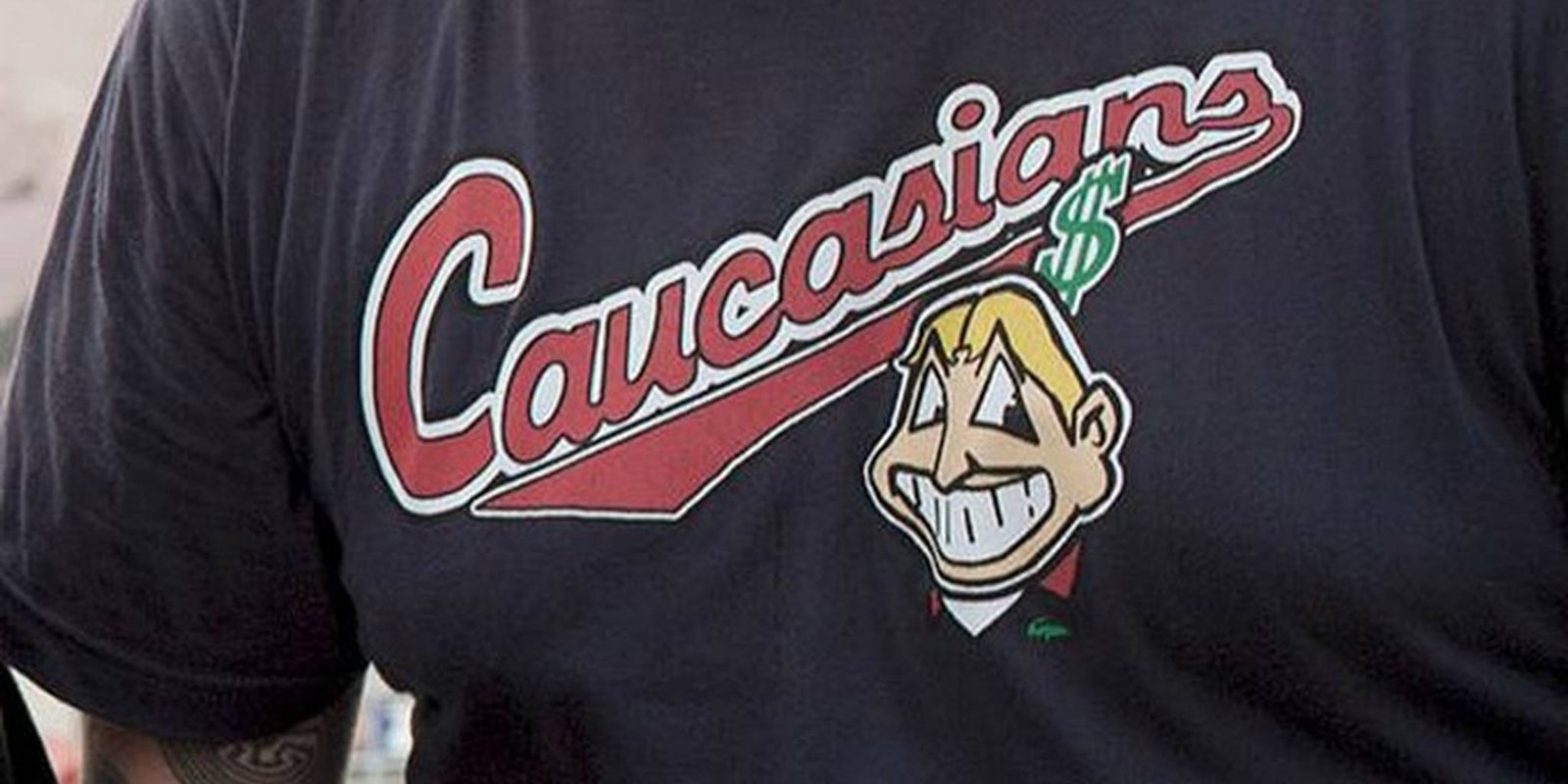Brian Kirby was driving down the street in his new home of Cleveland about a decade ago when something strange caught his eye. Well, it would have been strange if it wasn’t such a common image in the city. But after growing up in Long Island, New York, before eventually moving to northeast Ohio, the image was still new enough where it left him with an open jaw and the wisp of an idea.
He had inadvertently stumbled upon a painted mural strewn across the doors of a two-car garage of Chief Wahoo, the controversial mascot of the Cleveland Indians. It looked something like this.
#MLB Cleveland #Indians move away from Chief Wahoo logo https://t.co/XGvhYRlXat pic.twitter.com/gUAMk4s1wx
— Indians Fan Zone (@Indians_FZ) April 8, 2016
But the size of the mural was immense. The in-your-face style of it was stupefying. It wasn’t necessarily a racist statement that some random Cleveland homeowner was trying to make. Instead, it was a potentially offensive image that simply had been baked into the recipe of the city.
Kirby thought to himself, “What if the baseball team didn’t exist and people had decided to paint that face on their garage? People would be amazed at how crass it was. If the baseball team didn’t exist, would you walk around with that on your chest?”
Those thoughts lingered, and so, Kirby got to work, designing his response to the laughing face of Chief Wahoo, complete with a white man with a wide smile and featuring a dollar sign on top of his head instead of a feather. You might have seen the image Thursday when ESPN personality Bomani Jones wore the T-shirt of Kirby’s drawing on the set of the Mike and Mike show.
https://twitter.com/Heartbreakbre/status/718035436246065152
ESPN eventually asked him to cover up his T-shirt, and though Jones declined to comment directly to the Daily Dot, this is what he had to say about his fashion sense and why he was wearing it.
ppl emailing asking me for comment: my bosses asked that i reply to said requests with this. https://t.co/82zPoorcUx
— bomani (@bomani_jones) April 7, 2016
While Jones was speaking, Kirby—the owner of Shelf Life Clothing, the maker of the Indians parody shirt—was trying to figure out how to keep his website online and how to fulfill the T-shirt orders that were pouring in like an unstoppable flood. It started at about 8am ET on Thursday when, soon after Jones revealed his T-shirt, Kirby’s phone began filling with messages. For three hours, the phone buzzed incessantly. It only stopped when the phone actually ran out of battery life.
When he first heard about Jones’ shirt, Kirby called his wife—Laura, who also helps run the two-man family business out of their home—and asked her to record the show so he could watch. But soon after, screengrabs and videos filtered through social media.
“I was amazed at the reaction,” Kirby told the Daily Dot on Friday afternoon. “We had a lot of attention and a huge amount of traffic. We’ve been on CBS Sports and Spin magazine and everything in between in the past. In 2014, we had trucks of T-shirts backing up to my house. We had our bungalow home in Cleveland filled with boxes floor to ceiling. That’s going to happen again this week.”
As Kirby mentioned, this isn’t the first time the Caucasians shirt has gone viral.
In 2014, Deejay NDN of A Tribe Called Red was seen wearing the shirt, and with his group about to play Westfest—a music festival in Ottawa, Canada—an anonymous email was sent to the concert’s organizers with threats to boycott the concert because of the Caucasians shirt.
https://www.instagram.com/p/ov6i9MM25f/
Kirby said T-shirt sales in Canada “skyrocketed” after the incident. Two years later, his shirt is viral again.
“Bomani wore it to make a point—in a passive way, I thought,” Kirby said. “He wasn’t being smug about it. The things he said were right on the money.”
Said Jones on the ESPN set after the controversy had been inflamed: “The statement is obvious. This is the same thing that goes on with the logo of the Cleveland Indians. To have a problem with the logo of this would be to have a problem with the Indians. But if you’re quiet about the Indians and now you have something to say about my shirt, well, I think it’s time for introspection.”
Many, though, weren’t offended by the shirt and its message. In fact, hundreds of people wanted the shirt for themselves. Ultimately, so many people were logging on to the Shelf Life Clothing website that it crashed, a fact that angered Kirby. He figures about 1,500 people made contact about buying the shirt, but from Thursday well into Friday morning, his website was down.
Kirby stayed up all night fighting with his hosting company—which, even after putting the website on its largest private server, could not handle the influx of Internet users and, according to Kirby, eventually shuttered his site because its newfound popularity “was trashing their system.” He has since selected a different hosting company, and by Friday afternoon, the website had begun to spring back to online life.
Though he’s originally from New York, Kirby says he enjoys the local baseball team, and he believes the organization would love to get out from underneath the weight of Chief Wahoo but is being held hostage by the money his face brings into its coffers. But maybe, Kirby said, this shirt will make people think twice about everything—the mascot, what it means, and who it affects.
“People here really have an attachment to it,” Kirby said. “They don’t see past their nostalgia. I understand. But the one thing I’d like is to have everybody think about it. Just think about it.”
